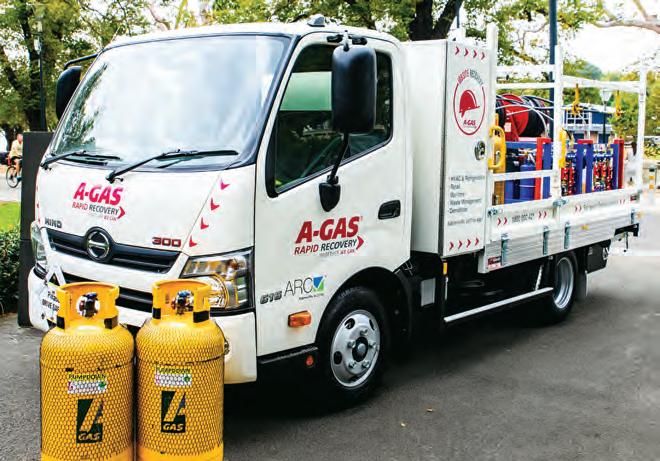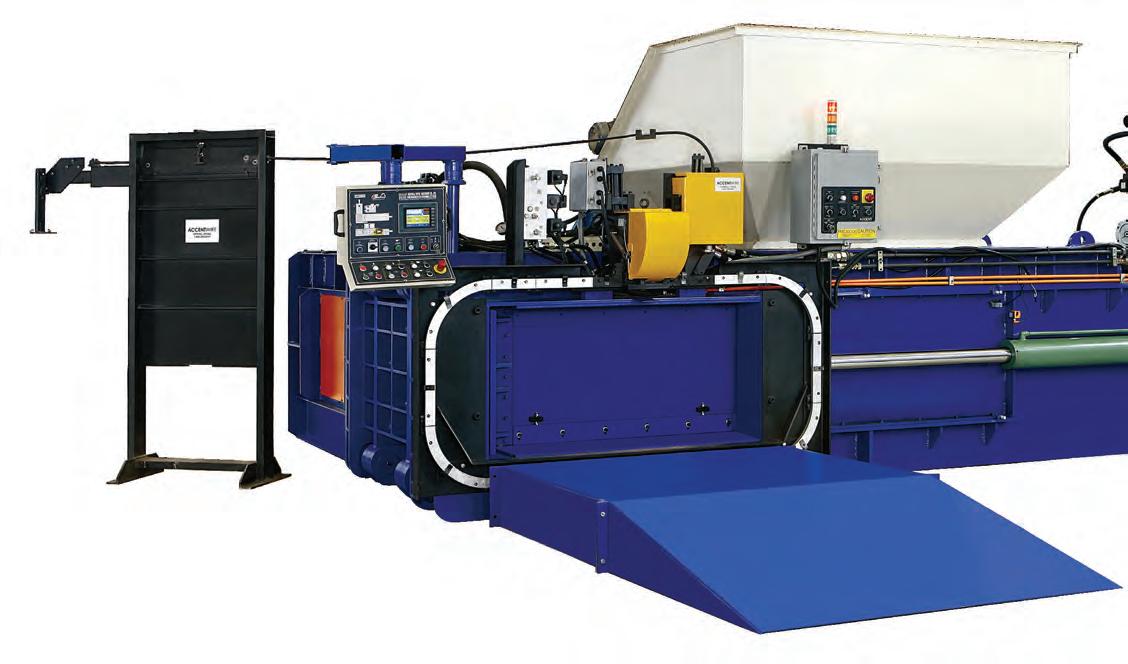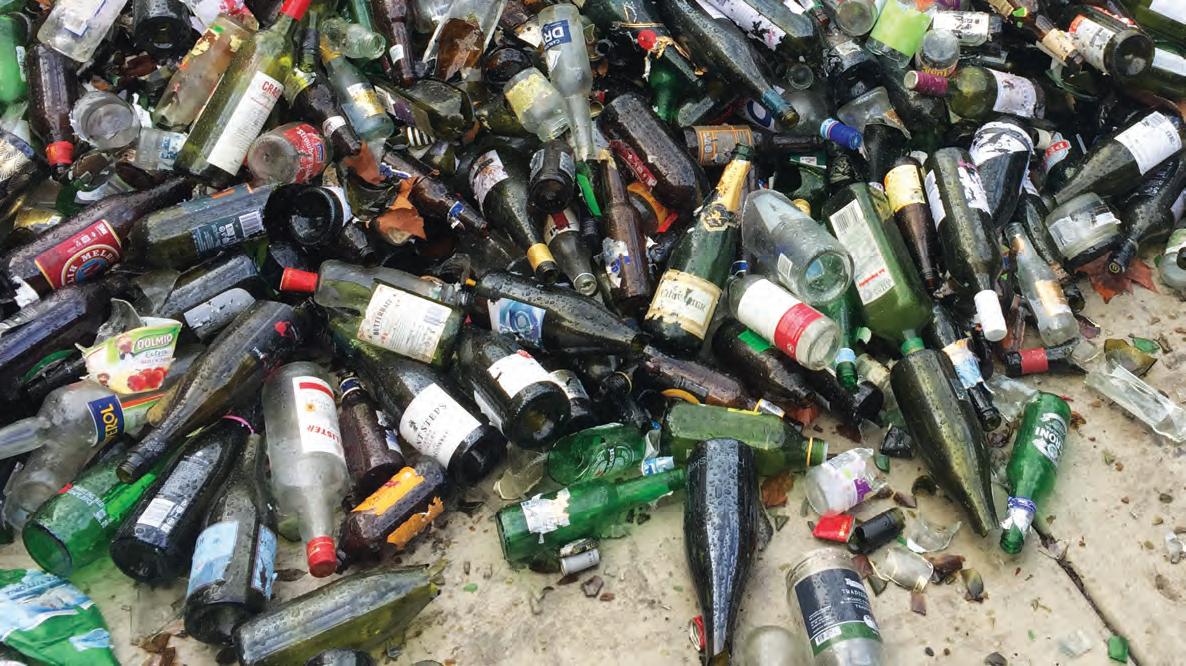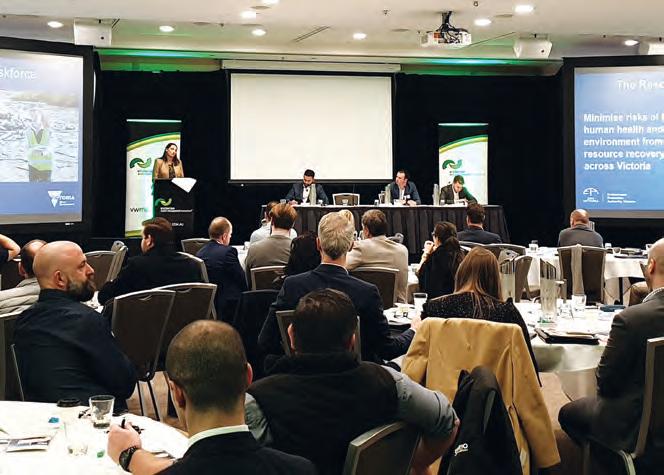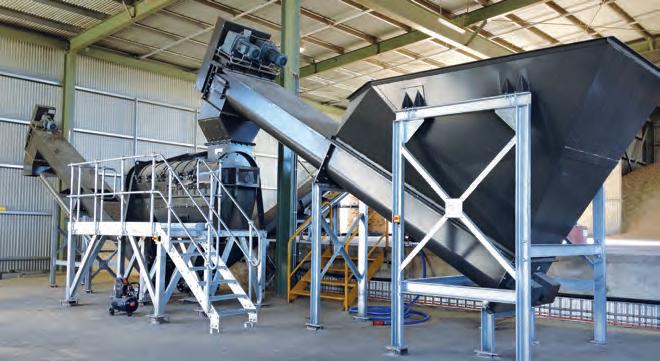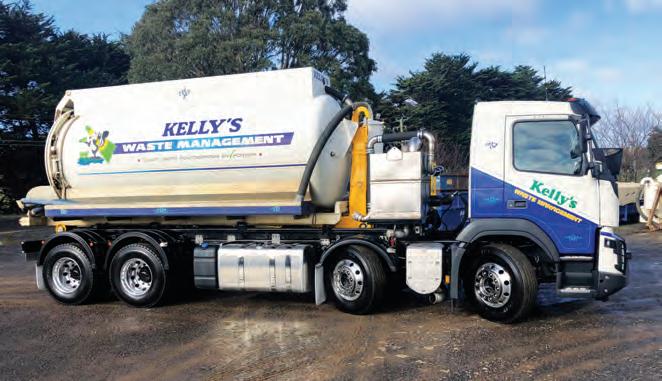
3 minute read
WOODCHIPS TO ENERGY
VEOLIA’S RECENT MOVES IN THE WASTE-TO-ENERGY MARKET HAS SEEN THEM TEAM UP WITH SPECIALIST EQUIPMENT SUPPLIER FINLAY.
Populations are growing and, as a result, so too is waste generation. Conversely, landfill capacity is declining as urban areas become increasingly dense.
While the waste hierarchy privileges avoidance, reuse and recycling, interest in waste-to-energy as a solution for material that falls through the cracks is growing. Capturing this potential was the driving force behind Veolia’s decision to open a new facility in Horsley Park, New South Wales.
According to site manager Stephen Bernhart, the new resource recovery facility handles wood waste material, which it then processes into a wood chip product.
“After running multiple equipment trials in 2018, we have recently kicked into operation,” Stephen says.
He adds that the wood chip product will be provided to a customer where it will be used as a substitute for coal within a cement kiln.
Veolia’s facility processes a significant amount of wood waste, such as pallets, offcuts and plywood which need to be shredded, and has the capacity to receive 430,000 tonnes of general solid nonputrescible waste per year.
“We have detailed specifications we need to meet to supply our wasteto-energy customer, and a big part of that is ensuring we achieved a material size sub 50 millimet res,” he says.
“It’s quite a challenging task because it’s such a small grade, so we decided to invite multiple suppliers out to the site to run tests and demonstrate their equipment.”
Stephen says Finlay Screening, Crushing and Recycling Systems, a supplier of screening and processing equipment for the waste and recycling industry, stood out during the trials.
“Finlay were heads and shoulders above the rest in demonstrating not just what their equipment could achieve, but how it could achieve it consistently,” he explains.
Finlay initially trialed a medium speed shredder, however, the resulting material didn’t quite meet specifications. Three weeks later they were back, with a Terex Finlay 693+ Super Track Screening Plant that, according to Stephen, worked extremely well.
“During the second trial there was a large lump of steel which had passed through the primary shredder into the secondary shredder,” Stephen says.
“The TDSV20 shredder shut down as intended, and Finlay representatives opened it up to remove the steel. The machine was back up and running in approximately three minutes – I was very impressed with how the equipment handled it.”
According to Stephen, Finlay also demonstrated how the shredding equipment could maintain the
required tonnage throughput in spite of the small material specifications.
In addition to the screening plant, Stephen purchased a Terex Finlay TDS 820 Slow Speed Shredder and a Terex Finlay TDS V20 Mid Speed Shredder and Finlay 5032HD wheeled conveyor.
Built to process bulky, solid waste, the TDS 820 has a two-metre shaft manufactured with a fully welded tooth configuration. Stephen explains that the length allows for significant throughput and size reduction of material.
“The machine’s independent gearboxes enable each shaft to be run separately, which reduces material wrappage and facilitates viable shredding,” he adds.
The Terex Mid Speed Shredder has a twin-shaft, allowing it to perform both primary and secondary shredding. The TDS V20 also has the ability to self-protect against uncrushable material like steel, making it well suited to shredding waste wood materials.
“We have had no trouble meeting specifications after procuring the equipment, all three machines have been running very well.”
According to Stephen, there has been very little down time at the Horsley Park facility.
“There were one or two minor teething issues initially, but Finlay were able to handle them quickly and without fuss,” he says.
Finlay representatives also assisted on-site equipment training when the facility was commissioned.
“They are very forthcoming with their information and we were able

Finlay representatives assisted in on-site equipment training.

to get local contractors trained up on how to run and maintain the shredders and screening plant as well,” he says.
“We are at a really exciting stage in our capability with an eye for expansion, so it’s crucial to have equipment that’s both reliable and efficient.”


